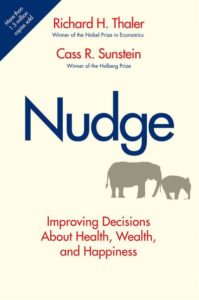One of the most influential ideas of the 2010s was behavioural economics — the modish mash-up of economics and psychology that launched a thousand TED talks. But according to Brandon Kochkodin (writing for Bloomberg) a backlash is underway:
Bursting this intellectual bubble will have consequences, because it’s had a major impact — not just in academia, but also politics and business. Just think of the Behavioural Insights Team (a.k.a. the ‘Downing Street nudge unit’) which was set up by David Cameron in 2010.

Behavioural economics offers a fix for the most fundamental problem with standard economics, which is us. Not only do human beings not possess perfect information about the markets we interact with, we also fail to act in predictably rational ways upon the information we do possess. Economists go to all the trouble of producing nice, neat economic models and we have to go and mess them up. How very unreasonable of us.
By reducing the roiling ocean of human illogic to a number of cognitive biases, behavioural economists appear to bring order from chaos. If our various deviations from the path of pure reason can be identified and quantified then, in theory, they can be corrected. Like a shopping cart with a wonky wheel we can be nudged back onto the right course.
Unless of course, the theory doesn’t hold up. In which case, that’s one less fig-leaf for our technocratic ruling class. There’s certainly nothing wrong with taking decisions on the basis of sound scientific evidence, of course; but where this isn’t available, it’s better to act on the basis of openly-stated belief than ersatz objectivity.










Join the discussion
Join like minded readers that support our journalism by becoming a paid subscriber
To join the discussion in the comments, become a paid subscriber.
Join like minded readers that support our journalism, read unlimited articles and enjoy other subscriber-only benefits.
Subscribe